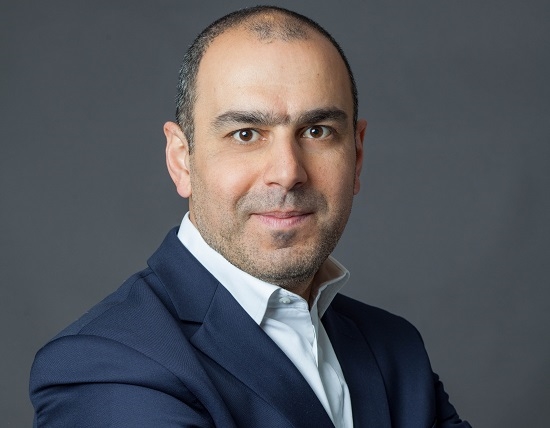How asset owners of tomorrow should approach investment management

By John Legrand, regional CEO, UK, Ireland, and Crown Dependencies at IQ-EQ
Asset owners are moving beyond traditional investment strategies to enhance returns and better control risk.
Asset owners' approach to investment management is rapidly changing as the holy trinity – technology, ESG and alternative asset classes – become increasingly vital for asset owners.
According to a 2020 annual ranking published in November 2020, the top 100 asset owners controlled $20.1 trillion (£14.8tn) in global assets at the end of 2019; a 6% increase over the year-ago period.
The Thinking Ahead Institute (TAI) noted in a recent study that the world’s biggest investors are championing the cause of ESG in the companies they own, with a focus on reducing the impact of climate change. In addition, asset owners are increasingly diversifying into alternative investments to achieve a premium, amid the search for alpha in a more challenging market. These factors are putting increased pressure on asset owners to develop sophisticated data analytics tools and capabilities to compete more effectively in the new investment climate.
In a changing market, there are three key trends in the future of investment management that are important to explore.
Expansion into alternative assets
Alternative asset investing is a key focus for asset owners. The strategy enables investors to diversify their portfolios, achieve a premium on investment returns, and manage risk. A September 2020 survey found that 40% of asset owners plan to increase their allocations to alternative investment strategies over the next three to five years.
It should come as no surprise that technology-intensive processes are applied to manage and administer alternative assets. Most prominently, the Blockchain or distributed ledger technology. This simultaneously updates the accounts of all organisations enabling transparent and immutable transactions. Tokenisation, or dividing physical assets into a finite number of digital assets, could change the very definition of private markets and rewrite pricing dynamics.
Technology powering investment management
Technological efficiencies rely on asset owners effectively accessing and sharing data, which has traditionally been a complex process. However, the future looks more promising for asset owners, provided they have the processing power and willingness to share data. Data properly reported can be turned into actionable intelligence and technological advances such as portfolio monitoring offers asset owners more ability to manage risk and build exposures to previously illiquid asset classes.
ESG focus sharpened by regulatory pressure
Finally, the research by TAI further noted that the top 100 asset owners have become more prominent in integrating ESG and being more active owners. This includes reporting on the impacts of their investment strategies, reducing carbon emissions and investing in assets that support a low-carbon economy. This is in addition to devising and implementing climate transition strategies in line with the Paris Agreement.
The pursuit of these goals is being sharpened by regulations requiring asset owners to disclose the risks of climate changes within their portfolios. For example, the British government is aiming to introduce mandatory climate-related disclosures in line with the Taskforce for Climate-Related Financial Disclosures (TCFD). These recommendations could be in place across the economy by 2025, with many of the requirements in place by 2023.
Pension schemes were the first to be targeted, with the Department for Work and Pensions (DWP) setting out its initial proposals in August 2020. The new regulations, which are still subject to parliamentary debate, fall under the Pension Schemes Act 2021. This requires trustees to identify and evaluate climate risks and opportunities that may affect investment strategies over the short, medium and long terms. Investors will also be required to disclose in annual reports the carbon emissions of their portfolios. They must conduct scenario analysis, select and calculate climate metrics that impact on the portfolio, and set climate targets and review performance against them, using the TCFD standards as their benchmark.
More recently, in July 2021, the Institutional Limited Partners Association (ILPA) released a new ESG resource to help its members understand how general partners are integrating ESG into its investment processes. The ILPA noted that the framework itself was prompted by increasing interest from ESG-minded asset owners to have its fund managers in alignment with their goals. The ILPA also offers an ESG Road-map and has expanded the environmental, social and governance section of its due diligence questionnaire, based on one from the UN Principles for Responsible Investment.
The future of investment management
Ultimately, as asset owners factor in advances in technology, it is clear that the future of asset management will be highly scientific and empirical in nature and that there is no going back.
With ESG goals and alternative asset classes taking centre stage, innovation will continue to empower asset owners, whether they are individuals or institutions, to reach their objectives of sustainable investing and portfolio diversification.
Found this useful?
Take a complimentary trial of the FOW Marketing Intelligence Platform – the comprehensive source of news and analysis across the buy- and sell- side.
Gain access to:
- A single source of in-depth news, insight and analysis across Asset Management, Securities Finance, Custody, Fund Services and Derivatives
- Our interactive database, optimized to enable you to summarise data and build graphs outlining market activity
- Exclusive whitepapers, supplements and industry analysis curated and published by Futures & Options World
- Breaking news, daily and weekly alerts on the markets most relevant to you



